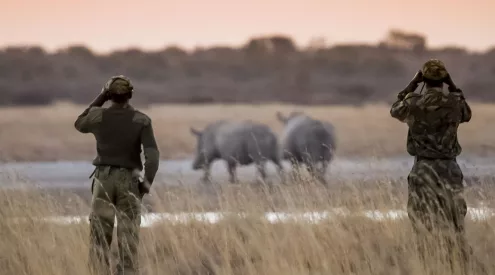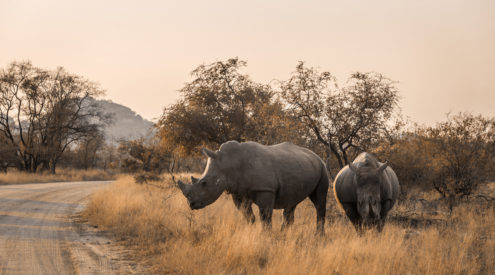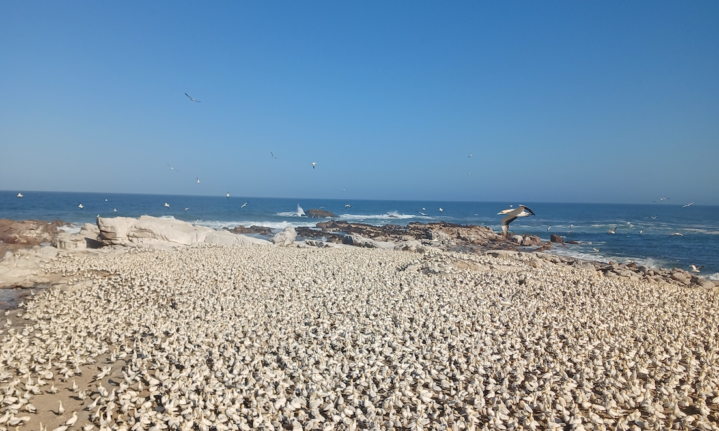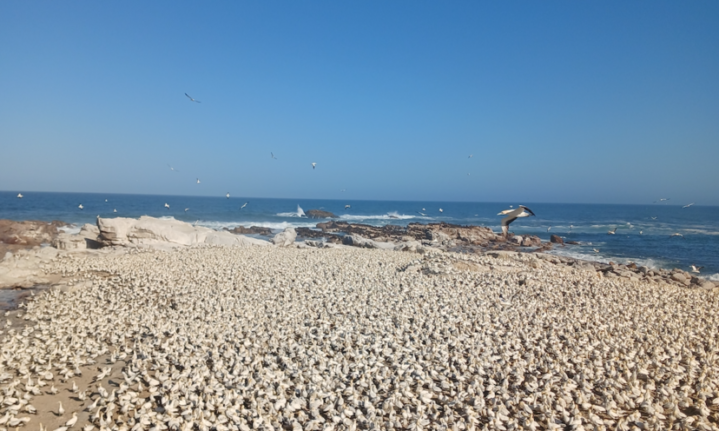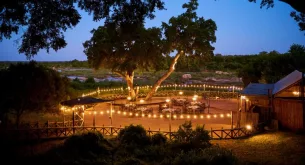With ongoing monitoring and innovative conservation strategies, Lambert’s Bay Bird Island celebrates a conservation milestone as Southern Africa’s most thriving Cape Gannet colony.
This island supports one of the region’s healthiest seabird populations, reflecting record-breaking Cape Gannet numbers and steady improvements in the colony’s stability and vitality.
In January 2025, the Cape Gannet population reached an impressive 45,000 individuals—the highest figure in 19 years—following five years of stable numbers in the 30,000s.
This remarkable growth points to successful local breeding and an influx of Gannets from other colonies, attracted by the island’s ideal conditions, including abundant space, limited predators, plentiful food, and consistent conservation efforts.
The dedicated team at Bird Island Nature Reserve is key to this success. A conservator and three monitors conduct daily patrols to protect the colony. Their work involves identifying threats such as mortalities, disease, egg predation by Kelp Gulls, and activity from predators like mongooses, which could harm adult Gannets, chicks, or eggs. They also guard against illegal human activity and monitor the impact of weather events, including heavy rain, strong swells, and heatwaves.
Chick fledging season is a crucial period when young Gannets take their first flight into the ocean. During this time, the team meticulously counts every chick, including those lost to predators like Cape-fur seals. Eighteen years of detailed data collection have provided invaluable insights into the colony’s health and challenges.
Managing the local seal population has been another vital aspect. Seals, known to prey on fledgling Gannets, are restricted to the island’s western side by an invisible boundary. If they venture beyond this area, they are herded back, preserving the Gannets’ breeding space. This strategy has successfully prevented seals from colonising the island and threatening the Gannet population. The importance of these measures was evident in 2005, when seal predation caused the colony to temporarily abandon the island. Prompt action by Cape Nature, including predator management and the use of bird decoys, helped restore the colony.
“Bird Island’s success is a valuable example of the effectiveness of hands-on conservation. We learn again that positive conservation outcomes often require persistent effort across several years,” said Cape Nature CEO Dr Ashley Naidoo. “Through constant monitoring, proactive management of threats like seals and gulls, and a commitment to conserving the island’s unique ecosystem, Bird Island can claim to be the best-managed Gannet colony in Southern Africa.”
Follow us on social media for more travel news, inspiration, and guides. You can also tag us to be featured.
TikTok | Instagram | Facebook | Twitter
ALSO READ: Things to consider when planning a luxury getaway

